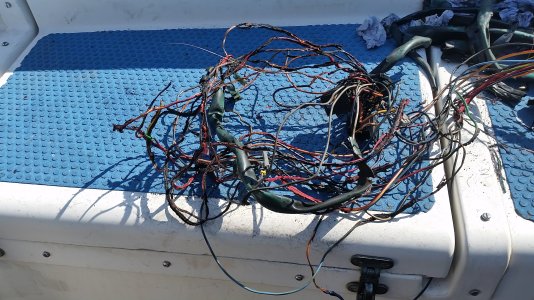simonfraser
Well-known member
a fuse by the battery, so how are these rated to protect the wire / boat to the on off switch further up the chain ?
my battery switch in a 2021 boat is connected straight to the battery, no fuse, not for the house and not for the starter either
oh and not in the bow for the battery to the bow thurster either
and then do we need a fuse between the on off swich and the DC switch board too ?
my battery switch in a 2021 boat is connected straight to the battery, no fuse, not for the house and not for the starter either
oh and not in the bow for the battery to the bow thurster either
and then do we need a fuse between the on off swich and the DC switch board too ?

